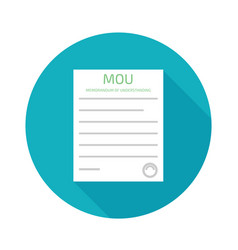Role Playing Game Periodisasi Zaman Praaksara sebagai Multimedia Pembelajaran Sejarah untuk Siswa Sekolah Menengah Pertama
Abstract
Abstrak:
Tujuan dari penelitian ini adalah untuk menciptakan multimedia pembelajaran Role Playing Game yang valid atau layak digunakan untuk memotivasi siswa dan membuat pembelajaran menjadi lebih menyenangkan. Dalam game ini siswa akan berperan sebagai karakter utama, dimana siswa harus menyelesaikan misi, tantangan, dan hambatan yang mengarah pada pembelajaran sejarah (Periodisasi Zaman Praaksara secara Arkeologis). Penelitian ini menggunakan model pengembangan multimedia menurut Lee & Owens. Pada penerapannya, Role Playing Game Periodisasi Zaman Praaksara secara Arkeologis ini hanya sampai tahap uji validitas saja. Hasil validasi ahli materi memperoleh nilai rata-rata sebesar 98,3% dan ahli media sebesar 96,7%. Dari hasil penelitian ini dapat disimpulkan bahwa Role Playing Game Periodisasi Zaman Praaksara secara Arkeologis ini telah valid atau layak untuk digunakan dalam pembelajaran. Multimedia game edukasi dapat menjadi alternatif media yang digunakan untuk membuat pembelajaran menjadi lebih menyenangkan dan motivasi siswa dalam belajar.
Abstract: The purpose of this study is to create a learning medium that is valid or appropriate to be used to motivate students and make learning more enjoyable. In this game students will act as the main characters, where students must complete missions, challenges, and obstacles that lead to historical learning (Archeological Periodization of Pre-Literacy Era). This research uses a multimedia development model according to Lee & Owens. In its application, this Archeological Periodization of Pre-Literacy Era Role Playing Game is only up to the validity test stage. The results of the validation of material experts obtained an average value of 98.3% and media experts of 96.7%. From the results of this study, it can be concluded that the Archaeological Periodization of Pre-Literacy Era Role Playing Game is valid or suitable for use in learning. Educational multimedia games can be an alternative media used to make learning more fun and motivate students to learn.
Keywords
Full Text:
PDFReferences
Alessi, S. M., & Trollip, S. R. (2001). Multimedia for learning: Methods and development. Allyn & Bacon.
Almeida, F., & Simoes, J. (2019). The role of serious games, gamification and industry 4.0 tools in the education 4.0 paradigm. Contemporary Educational Technology, 10(2), 120–136. https://doi.org/10.30935/cet.554469
Arsyad, A. (2013). Media Pembelajaran; Edisi Revisi. PT. Rajagrafindo Persada.
Bayram, S. (2019). World journal on educational technology: Current issues. 11(1), I. https://doi.org/10.18844/wjet.v11i1.3978
Brom, C., Dobrovolný, V., Děchtěrenko, F., Stárková, T., & Bromová, E. (2019). It’s better to enjoy learning than playing: Motivational effects of an educational live action role-playing game. Frontline Learning Research, 7(3), 64–90. https://doi.org/10.14786/flr.v7i3.459
Capuno, R., Revalde, H., Etcuban, J. O., Aventuna, M., Medio, G., & Demeterio, R. A. (2019). Facilitating Learning Mathematics Through the Use of Instructional Media. International Electronic Journal of Mathematics Education, 15(1), 677–688. https://doi.org/10.29333/iejme/5785
Cheng, Y. M., Kuo, S. H., Lou, S. J., & Shih, R. C. (2012). The construction of an online competitive game-based learning system for junior high school students. Turkish Online Journal of Educational Technology, 11(2), 214–227.
Costa, C., Tyner, K., Henriques, S., & Sousa, C. (2018). Game creation in youth media and information literacy education. International Journal of Game-Based Learning (IJGBL), 8(2), 1–13.
Giulietti, & Assumpção. (2019). Gamification in Science Education: The Relationship of Educational Games To Motivation and Achievement. Journal of Chemical Information and Modeling, 53(9), 1689–1699. https://doi.org/10.1017/CBO9781107415324.004
Gros, B. (2007). Digital games in education: Me design of games-based learning environments. Journal of Research on Technology in Education, 40(1), 23–38. https://doi.org/10.1080/15391523.2007.10782494
Hidayatullah, P., Daswanto, A., & Nugroho, S. P. (2011). Membuat mobile game edukatif dengan Flash. Informatika, Bandung.
Howard, M. A. (2018). A game of faith: Role-playing games as an active learning strategy for value formation and faith integration in the theological classroom. Teaching Theology and Religion, 21(4), 274–287. https://doi.org/10.1111/teth.12455
Hwang, G.-J., Sung, H.-Y., Hung, C.-M., Huang, I., & Tsai, C.-C. (2012). Development of a personalized educational computer game based on students’ learning styles. Educational Technology Research and Development, 60(4), 623–638.
Ivić, I. (2019). Printed and digital media: Printed and digital textbooks. Center for Educational Policy Studies Journal, 9(3), 25–49. https://doi.org/10.26529/cepsj.694
Karagiorgas, D. N., & Niemann, S. (2017). Gamification and Game-Based Learning. Journal of Educational Technology Systems, 45(4), 499–519. https://doi.org/10.1177/0047239516665105
Kinzie, M. B., & Joseph, D. R. D. (2008). Gender differences in game activity preferences of middle school children: implications for educational game design. Educational Technology Research and Development, 56(5–6), 643–663.
Lee, W. W., & Owens, D. L. (2004). Multimedia-based instructional design: computer-based training, web-based training, distance broadcast training, performance-based solutions. John Wiley & Sons.
Noemí, P.-M., & Máximo, S. H. (2014). Educational games for learning. Universal Journal of Educational Research, 2(3), 230–238. https://doi.org/10.13189/ujer.2014.020305
Pornel, J. B. (2014). Factors that make educational games engaging to students. Philippine Journal of Social Sciences and Humanities, 16(2), 1.
Poy, R., & García, M. (2019). Wizards, elves and orcs going to high school: How role-playing video games can improve academic performance through visual learning techniques. Education for Information, 35(3), 305–318. https://doi.org/10.3233/EFI-190285
Puspitarini, Y. D., & Hanif, M. (2019). Using Learning Media to Increase Learning Motivation in Elementary School. Anatolian Journal of Education, 4(2), 53–60. https://doi.org/10.29333/aje.2019.426a
Putra, A. P., Soepriyanto, Y., & Husna, A. (2019). Pengembangan multimedia game edukasi tentang keragaman masakan khas daerah-daerah di indonesia untuk kelas v sd. Jurnal Kajian Teknologi Pendidikan, 1(4), 299–306.
Rodkroh, P., Suwannatthachote, P., & Kaemkate, W. (2013). Problem-Based Educational Game Becomes Student-Centered Learning Eenvironment. 336–340.
Sari, K. W., Saputro, S., & Hastuti, B. (2014). Pengembangan game edukasi kimia berbasis role playing game (RPG) pada materi struktur atom sebagai media pembelajaran mandiri untuk siswa kelas X SMA di kabupaten Purworejo. Jurnal Pendidikan Kimia, 3(2), 96–104.
Setyawan, W. C., Sulthoni, S., & Ulfa, S. (2019). Pengembangan Multimedia Game Edukasi Ipa Lapisan Bumi Untuk MTS. Jurnal Kajian Teknologi Pendidikan, 2(1), 30–36.
Shu, L., & Liu, M. (2019). Student engagement in game-based learning: A literature review from 2008 to 2018. Journal of Educational Multimedia and Hypermedia, 28(2), 193–215.
Sung, H.-Y., & Hwang, G.-J. (2013). A collaborative game-based learning approach to improving students’ learning performance in science courses. Computers & Education, 63, 43–51.
Susanto, A. (2014). Pengembangan pembelajaran IPS di SD. Kencana.
Vega, A. V. (2016). Game edukasi sebagai media pembelajaran pendidikan anak usia dini. Inform, 1(1), 25–32.
Wagner, R. W. (1970). Edgar Dale: Professional. Theory into Practice, 9(2), 89–95.
Wong, S. Y., & Ghavifekr, S. (2018). User experience design of history game: An analysis review and evaluation study for Malaysia context. International Journal of Distance Education Technologies, 16(3), 46–63. https://doi.org/10.4018/IJDET.2018070103
Wulandari, R., Susilo, H., & Kuswandi, D. (2017). Penggunaan Multimedia Interaktif Bermuatan Game Edukasi untuk Meningkatkan Aktivitas dan Hasil Belajar Siswa Sekolah Dasar. Jurnal Pendidikan: Teori, Penelitian, Dan Pengembangan, 2(8), 1024–1029.
DOI: http://dx.doi.org/10.17977/um038v3i32020p340
Refbacks
- There are currently no refbacks.
Copyright (c) 2020 Elya Tri Nuraeni, Yerry Soepriyanto, Arafah Husna

This work is licensed under a Creative Commons Attribution-ShareAlike 4.0 International License.
JKTP: Jurnal Kajian Teknologi Pendidikan published by Department of Educational Technology, Faculty of Education, State University of Malang in Collaboration with Asosiasi Program Studi Teknologi Pendidikan Indonesia (APS TPI).
Publisher Address:
Lab. Teknologi Pendidikan, Gd.E2, Lt.1
Fakultas Ilmu Pendidikan Universitas Negeri Malang
Jl. Semarang 5, Kota Malang Email: jktp.fip@um.ac.id
========================================================================================================
| INDEXED BY | TOOLS | PLAGIARISM CHECK | ARTICLE TEMPLATE |
|
|

JKTP: Jurnal Kajian Teknologi Pendidikan is licensed under a Creative Commons Attribution-ShareAlike 4.0 International License.
JKTP Statistics (Since July 13th, 2020)






.png)












